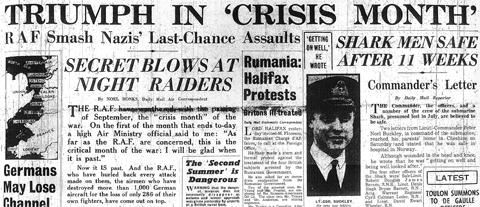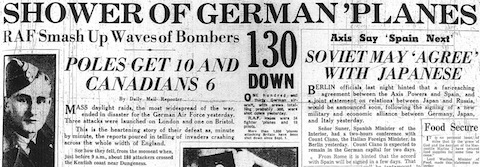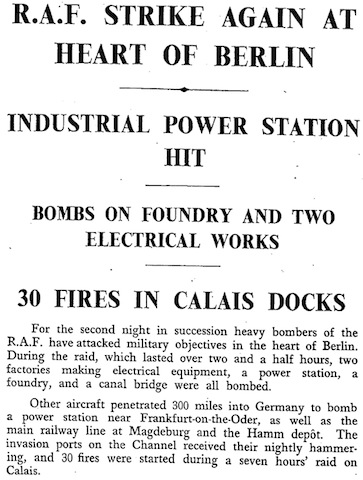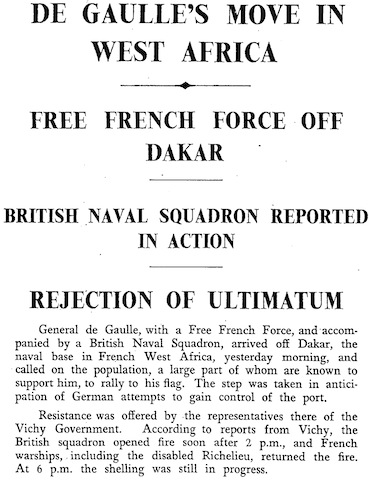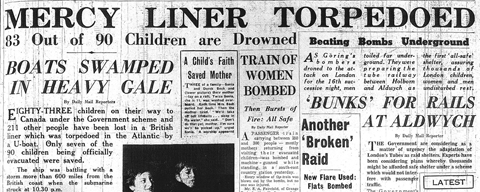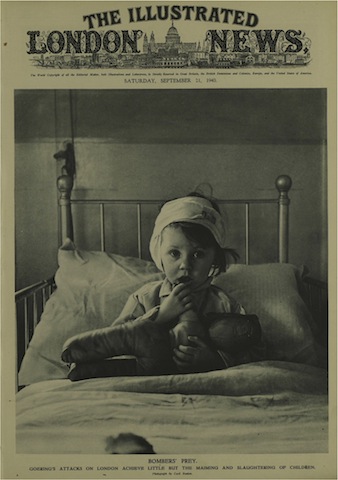Monday, 30 September 1940
Noel Monks, air correspondent of the Daily Mail, is in a confident mood today (1). He is essentially declaring victory for the RAF in the Battle of Britain: THE R.A.F. have weathered with the passing of September, the “crisis month” of the war. On the first of the month that ends to-day a high Air […]

